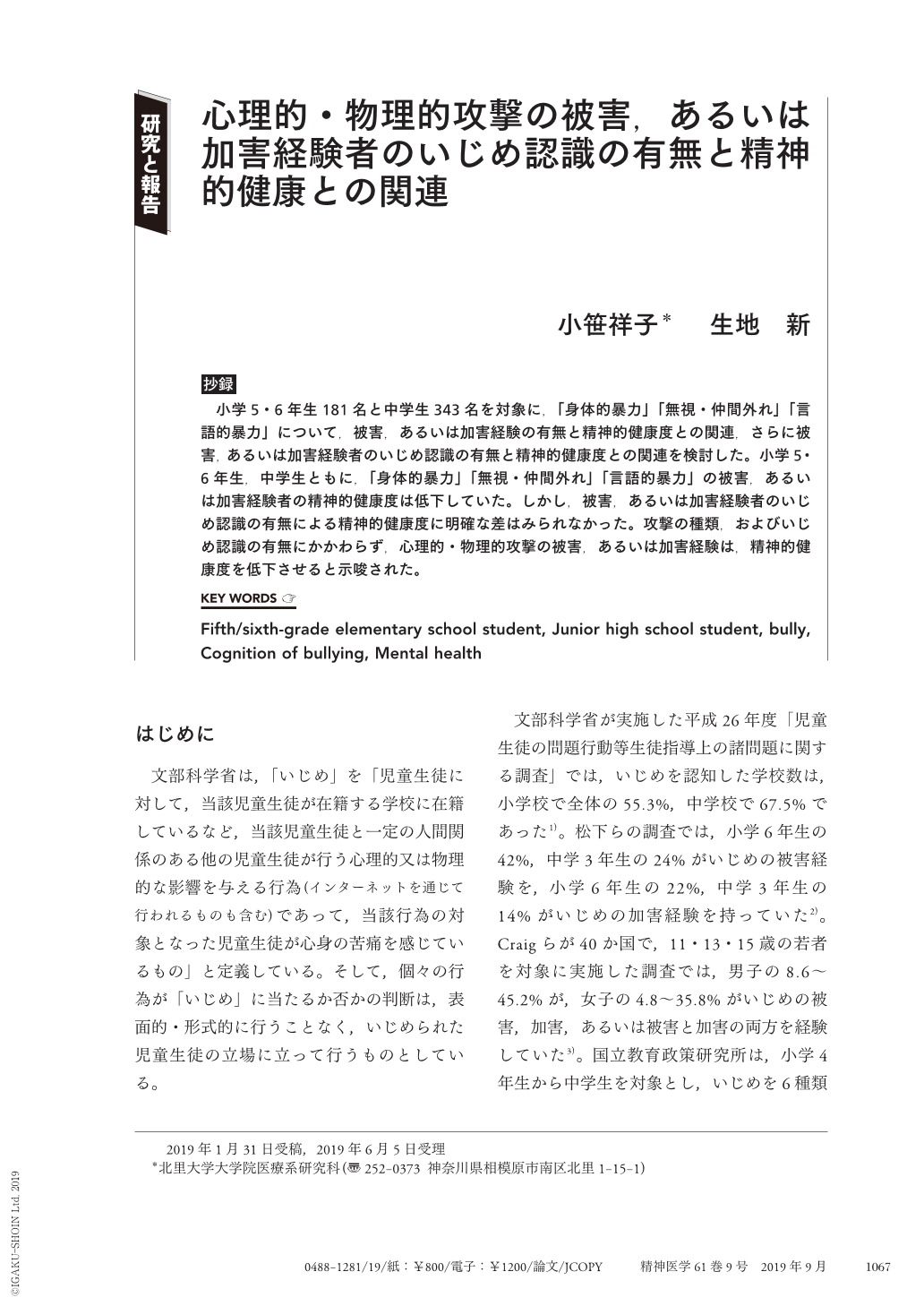Japanese
English
- 有料閲覧
- Abstract 文献概要
- 1ページ目 Look Inside
- 参考文献 Reference
抄録 小学5・6年生181名と中学生343名を対象に,「身体的暴力」「無視・仲間外れ」「言語的暴力」について,被害,あるいは加害経験の有無と精神的健康度との関連,さらに被害,あるいは加害経験者のいじめ認識の有無と精神的健康度との関連を検討した。小学5・6年生,中学生ともに,「身体的暴力」「無視・仲間外れ」「言語的暴力」の被害,あるいは加害経験者の精神的健康度は低下していた。しかし,被害,あるいは加害経験者のいじめ認識の有無による精神的健康度に明確な差はみられなかった。攻撃の種類,およびいじめ認識の有無にかかわらず,心理的・物理的攻撃の被害,あるいは加害経験は,精神的健康度を低下させると示唆された。
We studied the association between experiencing or perpetrating acts of bullying(physical violence, ignoring/ostracizing, and verbal violence)and mental hearth. Subjects were Japanese 181 fifth-and sixth-grade elementary school students and 343 junior high school students. Further, for each type of bullying(physical violence, ignoring/ostracizing, and verbal violence), we studied the association between the cognition of bullying by victims or perpetrators and mental health. Fifth-and sixth-grade elementary school students and junior high school students who had been either a victim or a perpetrator of each type of bullying(physical violence, ignoring/ostracizing, and verbal violence)showed lower mental health than students who had not been victims or perpetrators. However, no clear differences in mental health were observed according to whether the victims or perpetrators had cognition of bullying(physical violence, ignoring/ostracizing, and verbal violence). Our results suggest that regardless of type of attack, and cognition of bullying, being a victim or perpetrator of psychological or physical attacks lowers mental health.

Copyright © 2019, Igaku-Shoin Ltd. All rights reserved.


